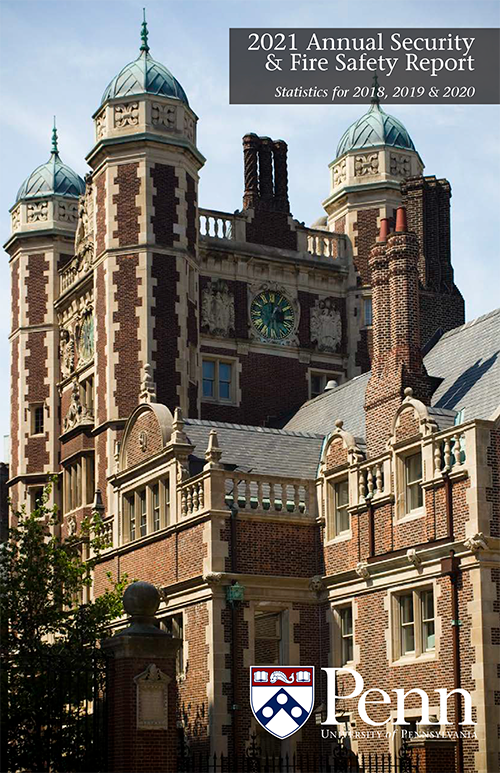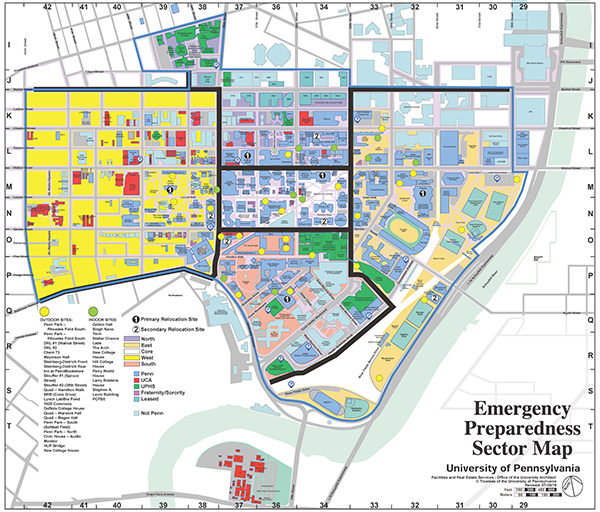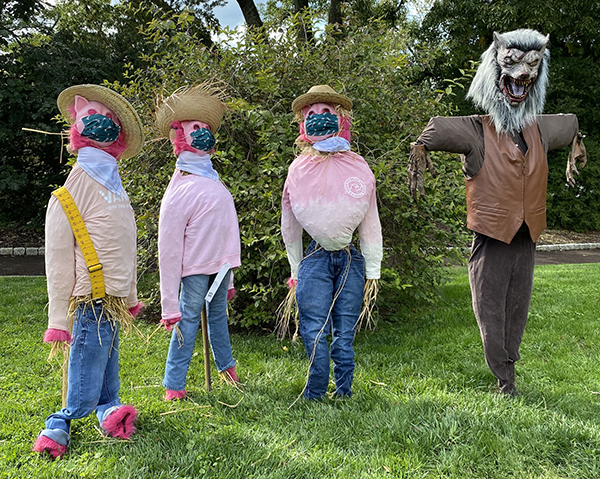U.S. News & World Report 2022 Rankings
In the newly released 2022 U.S. News & World Report ranking of United States universities, the University of Pennsylvania was ranked #8. This ranking is calculated from factors including graduation and retention rates, faculty resources, student/faculty ratios, class sizes, SAT/ACT scores, percentage of admitted students who were in the top 10% of their high school class, and the percentage of alumni making gifts. Penn was also ranked #14 in Best Value Schools; #26 in Most Innovative Schools; #46 in undergraduate research; and #48 in best undergraduate teaching.
The Wharton School of the University of Pennsylvania has retained its #1 post as the best undergraduate business program in the country, which it has held for many years. It is also ranked #1 in three specialties: finance, management, and real estate. In addition, it is ranked #2 in marketing; #3 in quantitative analysis; #4 in business analytics; #5 in entrepreneurship and productions/operations management; #6 in accounting and international business; #8 in insurance/risk management; #10 in supply chain management/logistics; and #12 in management information systems.
Penn’s School of Nursing was also ranked #1 for its undergraduate nursing program, the first year the national magazine has ranked undergraduate nursing programs.
Penn’s School of Engineering and Applied Science ranked #21 (tied with Columbia University, Penn State-University Park, University of Maryland-College Park, and University of Washington). Within SEAS, Penn ranked #10 in bioengineering/biomedical engineering, #15 in materials science and engineering, #20 in electrical/electronic/communications engineering; #21 in mechanical engineering; #22 in computer engineering, and #23 in chemical engineering, for undergraduate engineering programs at schools whose highest degree is a doctorate. SEAS was also ranked #16 for undergraduate computer science programs, with rankings at #11 for programming; #13 for artificial intelligence; #16 for data analytics/science; and #21 for theory.
Jie Deng: $3 Million Grant to Study Improvements in Lymphedema Care Delivery
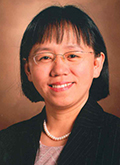 A research team led by Penn Nursing’s Jie Deng, associate professor of nursing in the department of biobehavioral health sciences in Penn Nursing, has been approved for a $3 million funding award by the Patient-Centered Outcomes Research Institute (PCORI) to study lymphedema management in head and neck cancer survivors.
A research team led by Penn Nursing’s Jie Deng, associate professor of nursing in the department of biobehavioral health sciences in Penn Nursing, has been approved for a $3 million funding award by the Patient-Centered Outcomes Research Institute (PCORI) to study lymphedema management in head and neck cancer survivors.
Lymphedema is the swelling of soft tissues in the body that can progress into the development of hard tissue (fibrosis). This can develop in the head and neck area following head and neck cancer treatment. Lymphedema can substantially impact one’s ability to swallow, can limit ability to move the head and neck, and alters a person’s physical appearance, causing emotional distress. The way lymphedema is currently treated is through complete decongestive therapy (CDT), which is done by a certified lymphedema therapist. Many people with lymphedema are unable to access this specialized therapy in the clinical setting for a variety of reasons, including the potentially high cost of therapy and difficulty finding lymphedema therapy locally. Also, access to clinic-based therapy has been significantly impacted due to the COVID-19 pandemic. As such, many people instead use home-based lymphedema therapy techniques. However, no research has been done comparing the effects of clinic-based versus home-based lymphedema therapy.
Dr. Deng’s three-year, multi-site study compares two ways to give lymphedema therapy to head and neck cancer survivors who have developed lymphedema after their cancer treatment. It compares the effects of clinic-based and home-based CDT on changes in lymphedema. The study also compares the effects of clinic-based and home-based CDT on the symptoms and physical functional ability of the study participants. In addition, the study compares health care use between the participants receiving clinic-based versus home-based CDT.
“Treatment decisions for lymphedema occur daily in clinical practice and are consequential to head and neck cancer survivors and their caregivers,” said Dr. Deng. “Our study’s results will provide important evidence that is critical to helping patients, caregivers, and relevant stakeholders make informed decisions about lymphedema care.”
The research team will work closely with multiple stakeholders including patients, caregivers, health-care providers, health administrations, national organization leaders, and payers to conduct this study.
The study will involve three health systems and will be co-led by Robert Krouse, professor of surgery at the Perelman School of Medicine at the University of Pennsylvania.
“This study was selected for PCORI funding not only for its scientific merit and commitment to engaging patients and stakeholders in research, but also for its potential to fill an important evidence gap and give people information to help them better assess their care options,” said PCORI executive director Nakela L. Cook. “We look forward to following the study’s progress and working with Penn Nursing to share the results.”
Penn Nursing’s study was selected for PCORI funding through a highly competitive review process in which patients, clinicians and other stakeholders joined clinical scientists to evaluate the proposals. Applications were assessed for scientific merit, how well they will engage patients and other stakeholders, and their methodological rigor, among other criteria.
Jennifer Prah: Director of the Ortner Center
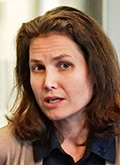 Dean Sara S. Bachman is delighted to announce the appointment of Jennifer J. Prah, Amartya Sen Professor of Health Equity, Economics and Policy in the School of Social Policy & Practice, as the Director of the Ortner Center on Violence and Abuse.
Dean Sara S. Bachman is delighted to announce the appointment of Jennifer J. Prah, Amartya Sen Professor of Health Equity, Economics and Policy in the School of Social Policy & Practice, as the Director of the Ortner Center on Violence and Abuse.
“One of the world’s foremost scholars and global leaders of health, well-being and flourishing, particularly among women and children, she will employ her vast knowledge and experience in research, teaching and service to expertly guide the Ortner Center’s core vision of safe daughters, confident women, and strong society,” said Dean Bachman. “Professor Prah is the ideal person to shape the future of the Ortner Center.”
“It is with gratitude and appreciation that I thank Susan B. Sorenson for her leadership of the Ortner Center, especially for her important and impactful work in public health, epidemiology and prevention of violence, gun violence and policy implications,” said Professor Prah. “I am deeply honored to be the next director of the Ortner Center, named for Evelyn Jacobs Ortner. I look forward to collaborating with faculty, staff and students to build on the critical mission and remarkable legacy of the Ortner Center to investigate the correlates and consequences of violence, abuse and control against women and girls as well as the conditions for women and girls to be healthy and flourish.”
“Jennifer has demonstrated exceptional leadership in each of the roles she has served,” said Dean Bachman. “She is known by those who have worked with her for her integrity and honesty, her wisdom and judgement and her commitment and care.”
“A collaborative and innovative leader and globally acclaimed social scientist, Jennifer’s deep knowledge and insightful and creative approach to health, well-being and flourishing will enrich and advance the Center’s mission,” Dean Bachman added.
“Our most profound mission for research at Penn,” said Interim Provost Beth A. Winkelstein, “is to make an impact on changing and improving people’s lives. This commitment is at the heart of my own work and the work of my colleagues across every discipline and department. Jennifer will be an ideal leader for this collaborative and interdisciplinary work in the years ahead, bringing together our faculty and students with policymakers, community leaders, and government agencies to help ensure the health and safety of women around the world.”
Antonia Villarruel, Margaret Simon Bond Dean of Nursing at the University of Pennsylvania, voiced her support and enthusiasm for collaborating with Professor Prah.
“We look forward to continued collaboration with the Ortner Center and Jennifer on this important next chapter. Her approach to social problems and possibilities, integrating social science research and practice to find policy solutions, and transcending interdisciplinary boundaries, will create new opportunities for women and girls affected by violence,” she said.
Michele Barry, Drs. Ben & A. Jess Shenson Professor and Senior Associate Dean for Global Health at Stanford University, Founder of WomenLift Health and a leading advocate of women’s rights in global health said, “Jennifer’s groundbreaking research and scholarship has helped shape policy in the United States and around the world and provides an example of the imaginative examination and novel work necessary to create the conditions for women and girls to be healthy and flourish.”
“I have worked with Jennifer in a number of capacities and she is a trusted and ethical global leader with the highest standards of integrity, judgement and excellence in scholarship, teaching and service. She is a superb scholar and a wise and thoughtful leader, she is exceptional in every way,” Professor Barry continued.
“Women and girls deserve respect, they are entitled to their human rights, including rights to health, well-being and flourishing and to be free from violence, abuse and control, and much more, this is a matter of justice,” Jennifer said.
“Women’s rights and girls’ rights are human rights, when women and girls flourish, society flourishes. Jennifer’s remarkably deep and broad intellect and brilliant ability to articulate a compelling vision of justice and human rights, of the value of women’s and girls’ lives to humanity, and to defend it, are outstanding and inspiring,” said Mary T. Bassett, François-Xavier Bagnoud Professor of the Practice of Health and Human Rights and Director of the François-Xavier Bagnoud Center for Health and Human Rights at Harvard University.
“In my past work with Jennifer, I have known her to embody intellectual rigor and independence, authentic curiosity and an ethical and collaborative commitment combined with unique insight, judgment and the integrity of a renowned global leader. She is an invaluable contributor and a trusted and caring colleague,” Professor Bassett added.
Professor Prah is the Amartya Sen Professor of Health Equity, Economics and Policy at the School of Social Policy & Practice and Professor of Medical Ethics and Health Policy at the Perelman School of Medicine at the University of Pennsylvania. She is the Founder and Director of the Health Equity and Policy Lab (HEPL), a global research lab that employs a multi-level and mixed-methods approach to conduct quantitative and qualitative research on the equity and efficiency of health and public policies. HEPL works with over 65 collaborators worldwide to produce research and scholarship that informs policy to advance health equity and efficiency, and ultimately human well-being and flourishing, through a theoretically and empirically grounded approach to social and behavioral science research.
Professor Prah has published pioneering research and scholarship that is widely cited in the academic literature as well as by the United Nations, World Bank, World Health Organization, and United States Government. She has been Principal Investigator and Co-Investigator on awards from the National Institutes of Health, Fogarty International Center, Donaghue Foundation, Greenwall Foundation and Robert Wood Johnson Foundation. She has served on numerous international and national committees and expert reviews, including for the U.S. Centers for Disease Control and Prevention, American Public Health Association, Institute of Medicine, National Institutes of Health, Fulbright Program, Agency for Healthcare Research and Quality, and institutions in East Asia, the Middle East, and Europe. She is an elected member of the Council on Foreign Relations, a Hastings Center Fellow, a Greenwall Faculty Scholar, a Guggenheim Fellow, and a Donaghue Investigator. Professor Prah received a bachelor’s degree from the University of California-Berkeley, master’s degrees from Oxford University, the Fletcher School of Law and Diplomacy, and Yale University, and a doctoral degree from Harvard University.
Return to Campus—Systemic Work Address Update
With Penn’s return to campus operations scheduled to resume on September 7, the University has identified a method to make a systemic change in Workday to update work addresses from the employee’s home address back to the campus work address. The systemic update is effective for pay dates on or after September 10, 2021, and will relieve department business administrators and human resources representatives (who have the Workday roles and responsibilities of HR Analysts and HR Partners) of the burden of making these changes manually.
In preparation for repopulating campus, the University has expressed its expectation of returning to pre-pandemic, on-campus operations, where any position that was on campus before the pandemic will return to campus, beginning in the fall. This is consistent with the University’s commitment to collaboration and cooperation achieved through in-person interactions.
Although staff were expected to return to working on campus by September 7, the University recognizes that there may be some hybrid work arrangements, provided such arrangements are consistent with operational needs. Hybrid work arrangements require manager approval, a business rationale, and a completed Agreement for Regular Off-Campus Work 1-2 Days/Week and must be signed by all required approval levels.
If staff believe their work address should not be changed from their home address back to a campus address, they should contact their school/center HR Representative or Staff and Labor Relations, as there is a multi-step approval process for requesting off-campus work that needs to be followed. No changes should be made to a staff member’s campus work location unless that process has been followed, and the change has been approved.
Note that all students will automatically be changed to an on-campus locations. Any new students must be entered into Workday as having a campus address.
Impact to Employees
Employees residing in Pennsylvania
Non-Philadelphia residents–will have Philadelphia City Wage tax withheld from their pay once the change is implemented.
Philadelphia residents–will not experience any change to their withholding.
Employees residing in reciprocal states (New Jersey, Ohio, Maryland, Virginia, West Virginia, and Indiana) and working in Pennsylvania
Workers who elect to be taxed in their state of residence instead of the state in which they work (PA)–will need to complete the state reciprocal form in Workday/BSI to have taxes withheld based on their state of residence. Refer to the Self Service: Access to W-2, W-4, and State Reciprocal Forms tip sheet for information on how to access the form. Philadelphia City Wage taxes will be withheld except where applied as a credit to state tax withholding.
Workers who do NOT elect to be taxed in their state of residence, but are instead taxed in the state in which they work (PA)–will have Philadelphia City Wage Tax and Pennsylvania state tax withheld once the Work Address has been updated to the on-campus address.
Workday Tasks to Be Completed by Employee-For individuals Residing Outside of Pennsylvania
To ensure they are properly taxed, workers should access Workday as soon as possible to review and update their tax information. Individuals whose work address has been changed have received a Workday notification of a To-Do task labeled “Address Change: Possible Updates Needed to Tax Elections.” Workers should do the following:
- Click on the “BSI Tax Withholding Form Employee” link and review and complete the appropriate state or local tax forms displayed.
- Click on the “Pick Other Forms” button to determine if additional forms are available to be completed. For additional information, refer to the Self Service: Access to W-2, W-4, and State Reciprocal Forms tip sheet.
- Once any tax changes have been reviewed and approved by the worker, the worker should submit the change and archive the task by clicking the orange Submit button.
If you have any questions, please contact the Employee Solution Center at solutioncenter@upenn.edu or (215) 898-7372.
—Department of Human Resources
2020-2021 Report of the Office of the Ombuds
Jennifer Pinto-Martin
Introduction
I served my first term as Ombuds during the 2020-2021 academic year and was ably assisted by Marcia Martinez-Helfman, Associate Ombuds, who provided mentorship and professional expertise.
The Office of the Ombuds plays an important role for faculty, students and staff who seek a safe place to speak freely about concerns they have and challenges they face as members of the Penn community.
When individuals bring problems to the Office of the Ombuds, we work to understand their frustrations and the circumstances that bring them to the office. We explore the various options that exist through information gathering and coaching. We often refer visitors to specific Penn policies, to internal Penn resources, and to external resources when appropriate. One of the most effective strategies we use to resolve challenging situations is to serve as a neutral intermediary between parties who wish to discuss issues, concerns, and conflicts, either through hosting a facilitated conversation or through shuttle diplomacy whereby we act as a conduit between parties who are unable or do not wish to communicate directly. These discussions are confidential, and no action is taken without a visitor’s permission. Table 1 elaborates on the nature of the services offered by the office.
Table 1: Engagement Descriptions
|
TYPE OF ENGAGEMENT
|
DESCRIPTION
|
|
Exploration of Options
|
Listen to visitor’s concerns and help identify possible avenues for resolution and alternative resources and strategies, and weigh relative merits of options.
|
|
Coaching
|
Provide visitor with alternative approaches and methods; role play and rehearse communications; help visitor plan next steps; advise on choice of language, tone, etc.
|
|
Information Gathering
|
Reach out directly to Penn resource to gather information pertinent to the resolution of the dispute.
|
|
Referral to Penn Policy
|
Direct visitor to formal University policies, procedures, and practices.
|
|
Referral to Internal Penn Resource
|
Provide visitor with description of and contact information for potentially useful resource(s) within the University.
|
|
Referral to External
Resource
|
Provide visitor with description of and contact information for potentially useful resource(s) outside the University.
|
|
Mediation/Facilitated Conversation (offered and/or hosted)
|
Offer to serve as neutral intermediary between parties wishing to meet to discuss issues, concerns, conflicts, etc., and host meeting upon request and mutual agreement of parties.
|
|
Shuttle Diplomacy
|
Serve as conduit between parties who cannot or are not willing to communicate directly with each other.
|
The Year in Review
This past year has been a challenging one in many ways. The COVID-19 pandemic has disrupted nearly all University operations and the stress of this global crisis and the associated changes and disruptions to our daily lives has been profound. Despite the remote nature of most University activities, the office still received a steady stream of visitors, though there was an 18% reduction from 2019-2020 after a steady increase over the last decade. We anticipate that the return to campus will bring the number of visitors back up to pre-COVID levels. We have found that the option to meet remotely has been welcomed by our visitors, and we plan to continue to offer both in-person and remote options in the coming year.
During the academic year 2020-2021, 153 individuals consulted the Office of the Ombuds. University staff accounted for the largest proportion of visitors (39%), followed by graduate and professional students (24%), faculty (16%), post-doctorates (8%), undergraduate students (7%), and others (5%). See Table 2. Visitors to the office come from all parts of the Penn community. These proportions have remained roughly stable for the last several years and generally reflect the relative sizes of these categories to the total population of the University, as well as the availability of alternative support services for particular sub-groups within the Penn community. Table 3 shows the breakdown of visitors by affiliation to the University.
Table 2: Visitors By Role 2020-2021
|
Faculty
|
16%
|
25
|
|
Graduate/Professional
|
24%
|
37
|
|
Undergraduate
|
7%
|
11
|
|
Staff
|
39%
|
60
|
|
Post-Doctorates
|
8%
|
12
|
|
Other
|
5%
|
8
|
|
|
|
153
|
Table 3: Visitors By Affiliation 2020-2021
|
Annenberg
|
2
|
|
Dental
|
6
|
|
Design
|
3
|
|
GSE
|
7
|
|
Law
|
5
|
|
Nursing
|
2
|
|
SAS
|
26
|
|
SEAS
|
7
|
|
PSOM
|
50
|
|
SP2
|
9
|
|
Vet
|
6
|
|
Wharton
|
6
|
|
N/A
|
20
|
|
unknown
|
4
|
|
|
153
|
The Office of the Ombuds records the nature of issues brought forward using broad categories that have remained virtually constant over the years to facilitate comparisons over time. The most frequent issue raised pertains to personal behavior (abusive, abrasive, and inappropriate conduct; discrimination; sexual harassment). This category accounted for 37% of total issues reported, while employment-related issues (procedures, benefits, compensation, promotions, and matters of a more general nature), accounted for 34%. This is the first year that behavioral issues outpaced employment issues. See Table 4.
Table 4: Visitors By Issues Raised (Including Primary and Secondary Issues)
|
|
ISSUE CATEGORY
|
ISSUE DEFINITION
|
VISITORS* 2020-2021
|
|
ACADEMIC RELATED
|
Academic, General
|
General academic matters involving students or faculty.
|
7
|
|
Academic Integrity
|
Honesty in academic pursuits, e.g., plagiarism, cheating, misrepresentation of academic records, fabrication, unfair advantage.
|
2
|
|
Academic Procedures
|
Formal (explicit or implicit) policies, procedures, and practices that regulate academic pursuits and interests.
|
11
|
|
Academic Standards
|
Matters relating to fairness and accuracy or rationales for academic standards of achievement.
|
7
|
|
Academic Research
|
Research results, interpretations, explanations, and associated authorship and intellectual property rights.
|
6
|
|
EMPLOYMENT RELATED
|
Employment, General
|
Matters relating to job performance or compatibility, discipline, or interpersonal issues relating to role as an employee.
|
32
|
|
Employment, Promotion
|
Career advancement to higher level; tenure.
|
2
|
|
Employment, Compensation
|
Rate of pay, salary amount, equity, or competitiveness.
|
1
|
|
Employment, Benefits
|
Rewards or compensation (other than wages and salary) associated with employment status and their equity, competiveness, or administration.
|
4
|
|
Employment, Procedures
|
Formal (explicit or implicit) policies and practices that regulate the employment relationship.
|
23
|
|
BEHAVIOR
|
Abrasive/Abusive/Inappropriate Behavior
|
Demonstration of inappropriate treatment of others, e.g., abusive, threatening, coercive behavior; rudeness, crudeness; acts or threats of violence.
|
48
|
|
Sexual Harassment
|
Unwelcome physical, verbal, written, electronically transmitted, etc. conduct of a sexual nature that creates a hostile or intimidating environment.
|
4
|
|
Discrimination
|
Disparate treatment tied to protected status (race, gender, age, national origin, religion, etc.)
|
14
|
|
OTHER
|
Procedures, General
|
General matters relating University policies, procedures, or practices.
|
4
|
|
Miscellaneous; Personal
|
Personal and interpersonal matters unrelated to formal role as student, faculty, or staff.
|
4
|
|
Financial Matters; Collections
|
Tuition, financial aid, payroll, and accounting issues.
|
7
|
|
Student Services
|
Delivery and administration of services to students.
|
4
|
|
TOTAL VISITORS
|
|
180
|
Our analysis identified some consistent themes:
- Microaggressions, bullying, and inappropriate or abusive behavior continue to be reported. This is often exacerbated by power disparities as well as language and cultural differences. It is essential for behavioral expectations to be consistently modeled by leaders. Additionally, University-wide training that addresses toxic work environments, sexual misconduct, discrimination, and microaggressions should be developed, presented, and in some circumstances mandated.
- We frequently heard from graduate students, post-doctoral fellows, and some junior faculty regarding the lack of clarity about data ownership, authorship, expectations of productivity, and associated concerns. Miscommunication or lack of communication from advisors, mentors, principal investigators, senior faculty, and academic administration are culprits, and again often exacerbated by power differentials inherent in those relationships. Vague or non-existent policies governing these matters also lead to confusion, inconsistencies and expectations that are at odds with those of others. The Office of the Vice Provost for Education publication, Advising and Mentoring Ph.D. Students, provides an excellent grounding and guidance for these relationships. However, corresponding policies at the school, department, and program levels would go a long way toward ameliorating these recurring problems. Accordingly, we encourage academic leadership across the University to address this significant gap in documentation and communication of policies and statements of roles and responsibilities.
- As we saw last year, the transition to remote work resulted in many questions and concerns about office procedures and expectations and about vaccination and testing requirements. As we begin to repopulate campus, concern is rising about disease transmission, even among those who are fully vaccinated. The Office of the Ombuds will continue to work with those who have concerns. Processes for submitting specific requests for religious or medical exemptions to vaccination have been established and we will advise those who have such questions accordingly.
- Faculty continue to express concern about the impact of the pandemic on research agendas, their tenure clocks, and reappointment procedures. These concerns are being addressed by new guidelines from the Vice Provost for Faculty, Laura Perna, and the Office of Ombuds is also available to assist regarding the interpretation and application of policies and guidelines.
We have developed presentations on the structure and function of the Office of Ombuds, which we delivered to various schools, departments, centers, and programs during the past year, and these were met with universal enthusiasm. The Office of the Ombuds welcomes the opportunity to continue to provide these presentations to constituencies throughout the Penn community.
The Office of the Ombuds is located at 113 Duhring Wing of the Fisher Fine Arts Library. We can be reached by phone at (215) 898-8261 or online at ombuds.upenn.edu. Please consult the website for more information about the Office and its activities or to arrange a consultation. We respond to inquiries quickly, and we encourage anyone experiencing difficulties related to their work, academics, or any other aspect of life as a member of the Penn community to contact the Office of the Ombuds. Visitors may speak with us without providing names or identifying information if they so choose.
Robert A. Rescorla Fund Established to Support Undergraduate Research with MindCORE
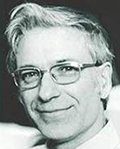 Shirley A. Steele has made a gift to create the Robert A. Rescorla Undergraduate Research Fellows Endowed Fund. The gift is made in memory of Ms. Steele’s late husband, Robert A. Rescorla, emeritus professor of psychology and former chair of the department of psychology and Dean of the College of Arts & Sciences (Almanac April 14, 2020).
Shirley A. Steele has made a gift to create the Robert A. Rescorla Undergraduate Research Fellows Endowed Fund. The gift is made in memory of Ms. Steele’s late husband, Robert A. Rescorla, emeritus professor of psychology and former chair of the department of psychology and Dean of the College of Arts & Sciences (Almanac April 14, 2020).
The fund will support undergraduates conducting research on human thinking and behavior as part of MindCORE’s summer fellowship program. MindCORE, Penn’s hub for the integrative study of the mind, hosts a 10-week program that pairs students with faculty mentors for research and training.
Paul Rozin, professor of psychology, noted, “Dr. Rescorla was the world’s most distinguished scholar in the area of the psychology of animal learning and a great teacher. He was perhaps the greatest pure experimental psychologist of the 20th century and a passionate advocate for undergraduates.”
Ms. Steele said, “Bob thought it was important for undergraduates to understand and participate in real research. His own college research experience was transformative, and it is only fitting that part of his legacy will be to create similar opportunities for generations of students.”
Ms. Steele is an artist whose work explores ideas about the human mind, language, and technology, informed by her career as a research scientist in speech and linguistics.
Payment Terms Pilot for Diverse and Local Suppliers
As part of Penn’s ongoing commitment to supplier diversity and inclusion, the University has introduced a pilot program to extend “immediate pay” payment terms to its diversity suppliers. This new modification positively impacts approximately 1,000 suppliers that do business with Penn (minority, woman, veteran, LGBTQ+, and other classifications) that qualify as diverse suppliers.
“Feedback obtained from engaging an inclusive array of stakeholders indicated that financial barriers related to cash flow and cost of money can put diverse businesses at a comparative disadvantage and, in turn, impede diverse suppliers’ ability to compete for business,” explained Penn’s chief procurement officer Mark Mills. “Adjusting the payment terms for our diverse suppliers is responsive to their needs and consistent with Penn’s goals of economic inclusion—particularly since the majority of these suppliers also identify as small business, and many are located in Philadelphia.”
The pilot, anticipated to run through FY2022, will examine the quantitative and qualitative data collected to assess whether this practice will continue. Consistent with Penn’s economic inclusion goals, a study is underway to ascertain the inclusion of other small, local businesses in Philadelphia.
For more information about the University’s Supplier Diversity & Inclusion Program, visit Penn’s Fueling Business Growth website at www.upenn.edu/supplier-diversity.
—Penn Procurement Services
NGSS Pennant Records: September 13 Release
The Next Generation Student Systems (NGSS) project, which is building and implementing Penn’s new student information system, launched the first release of Pennant Records on September 13, 2021. Pennant Records will be used by registrar staff in schools and departments for scheduling and managing courses offered in summer 2022 and later.
Following the first release of Pennant Records, the first release of Pennant Aid will launch in October. The initial launch of Pennant Aid manages student financial aid processes, including tracking, awards, needs analysis, endowed funding, and packaging for applicants starting in fall 2022.
To prepare the Penn community for the project’s second release of the Pennant applications in the spring of 2022, academic advisors will be invited to a demonstration of the new academic planning system on October 1, 2021. There will be other demonstrations and information sessions in the fall and spring leading up to preparation for using the system for advance registration for the 2022 summer session and the 2022 fall term. The information sessions will also include previews of Path@Penn, which will replace Penn InTouch; Advising@Penn, which will replace Advisor InTouch; and Courses@Penn, which will replace Courses InTouch.
The University’s goal is to update the technology available to students and those at Penn who teach and support them. Students will have improved access to information related to their coursework and degree requirements needed to succeed academically. They will also have improved access to the financial support they are eligible to receive.
Visit http://ngss.srfs.upenn.edu/ or email ngsscomms@isc.upenn.edu for the latest information.

 A research team led by Penn Nursing’s Jie Deng, associate professor of nursing in the department of biobehavioral health sciences in Penn Nursing, has been approved for a $3 million funding award by the Patient-Centered Outcomes Research Institute (PCORI) to study lymphedema management in head and neck cancer survivors.
A research team led by Penn Nursing’s Jie Deng, associate professor of nursing in the department of biobehavioral health sciences in Penn Nursing, has been approved for a $3 million funding award by the Patient-Centered Outcomes Research Institute (PCORI) to study lymphedema management in head and neck cancer survivors. Dean Sara S. Bachman is delighted to announce the appointment of Jennifer J. Prah, Amartya Sen Professor of Health Equity, Economics and Policy in the School of Social Policy & Practice, as the Director of the Ortner Center on Violence and Abuse.
Dean Sara S. Bachman is delighted to announce the appointment of Jennifer J. Prah, Amartya Sen Professor of Health Equity, Economics and Policy in the School of Social Policy & Practice, as the Director of the Ortner Center on Violence and Abuse.  Shirley A. Steele has made a gift to create the Robert A. Rescorla Undergraduate Research Fellows Endowed Fund. The gift is made in memory of Ms. Steele’s late husband, Robert A. Rescorla, emeritus professor of psychology and former chair of the department of psychology and Dean of the College of Arts & Sciences (
Shirley A. Steele has made a gift to create the Robert A. Rescorla Undergraduate Research Fellows Endowed Fund. The gift is made in memory of Ms. Steele’s late husband, Robert A. Rescorla, emeritus professor of psychology and former chair of the department of psychology and Dean of the College of Arts & Sciences (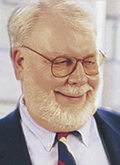 Peter H. Knutson, an associate professor emeritus of accounting at the Wharton School and a Sloan Fellow of the Wharton Financial Institutions Center, passed away at home in Edmonds, Washington from complications related to advanced prostate cancer on August 21. He was 86.
Peter H. Knutson, an associate professor emeritus of accounting at the Wharton School and a Sloan Fellow of the Wharton Financial Institutions Center, passed away at home in Edmonds, Washington from complications related to advanced prostate cancer on August 21. He was 86.
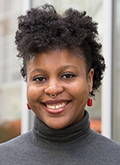 Annenberg School for Communication doctoral students Emma Jesch and Florence Zivaishe Madenga received the James D. Woods Award at the 2021 Annenberg Graduation Ceremony. Given in memory of Annenberg graduate student James D. Woods, the award is granted to an outstanding graduate teaching assistant.
Annenberg School for Communication doctoral students Emma Jesch and Florence Zivaishe Madenga received the James D. Woods Award at the 2021 Annenberg Graduation Ceremony. Given in memory of Annenberg graduate student James D. Woods, the award is granted to an outstanding graduate teaching assistant.
 Annenberg graduate students Mia Jovanova and Chioma Woko have received the Russell Ackoff Doctoral Student Fellowship Award for 2021 from the Wharton Risk Management and Decision Processes Center. This is the seventh year in a row, and the thirteenth year overall, that Annenberg students have been fellowship recipients.
Annenberg graduate students Mia Jovanova and Chioma Woko have received the Russell Ackoff Doctoral Student Fellowship Award for 2021 from the Wharton Risk Management and Decision Processes Center. This is the seventh year in a row, and the thirteenth year overall, that Annenberg students have been fellowship recipients.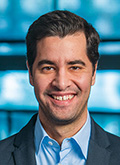 The Scialog: Advanced Bioimaging initiative has selected Paris Perdikaris, assistant professor of mechanical engineering and applied mechanics in Penn Engineering, to be part of its first cohort of researchers.
The Scialog: Advanced Bioimaging initiative has selected Paris Perdikaris, assistant professor of mechanical engineering and applied mechanics in Penn Engineering, to be part of its first cohort of researchers. NSF CAREER Award recipient Shirin Saeedi Bidokhti, assistant professor in electrical and systems engineering in Penn Engineering, will use the grant to conduct research on both online social networks and COVID-19 contact tracing networks. As case studies, these real-world examples will inform networked systems’ theoretical foundations, as well as the design of learning and decision-making algorithms that help make sense of them. Dr. Saeedi Bidokhti will also use the funding to develop a new course module that brings information and network theory into practice for undergraduate students at Penn.
NSF CAREER Award recipient Shirin Saeedi Bidokhti, assistant professor in electrical and systems engineering in Penn Engineering, will use the grant to conduct research on both online social networks and COVID-19 contact tracing networks. As case studies, these real-world examples will inform networked systems’ theoretical foundations, as well as the design of learning and decision-making algorithms that help make sense of them. Dr. Saeedi Bidokhti will also use the funding to develop a new course module that brings information and network theory into practice for undergraduate students at Penn.
 For their landmark research that laid a foundation for the mRNA SARS-CoV-2 vaccines, Drew Weissman, the Roberts Family Professor of Vaccine Research, and Katalin Karikó, an adjunct professor of neurosurgery at the Perelman School of Medicine and a senior vice president at BioNTech, have been selected to receive the 2021 Albany Prize. The award, one of the largest in medicine and science in the United States, has been given for the last 20 years by Albany Medical Center to those who have altered and positively impacted the course of medical research.
For their landmark research that laid a foundation for the mRNA SARS-CoV-2 vaccines, Drew Weissman, the Roberts Family Professor of Vaccine Research, and Katalin Karikó, an adjunct professor of neurosurgery at the Perelman School of Medicine and a senior vice president at BioNTech, have been selected to receive the 2021 Albany Prize. The award, one of the largest in medicine and science in the United States, has been given for the last 20 years by Albany Medical Center to those who have altered and positively impacted the course of medical research.